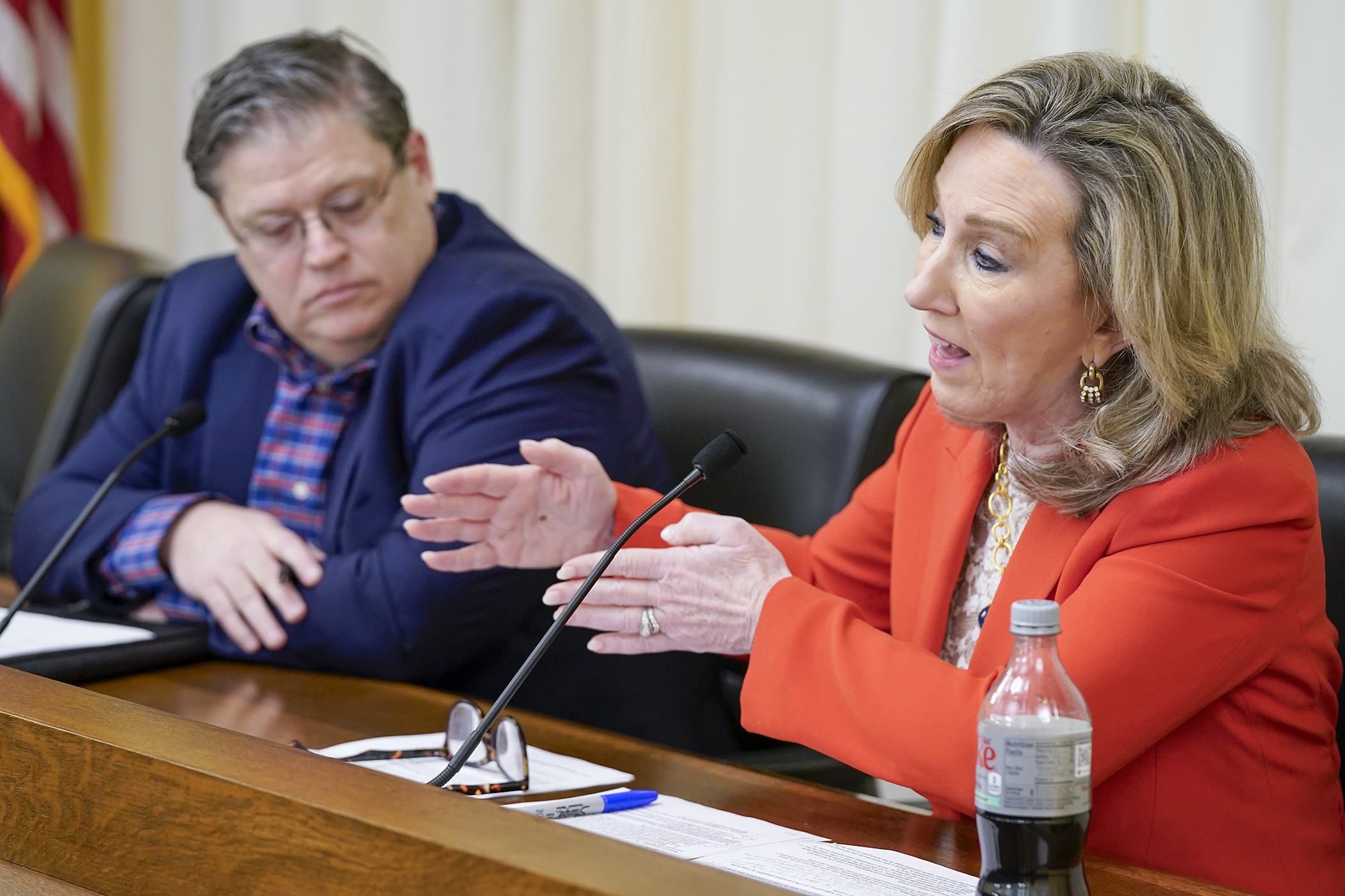House panel mulls modifying tax breaks to include state's largest data centers

Luring businesses to Minnesota with tax incentives is nothing new. But, if the state starts seeing budget deficits in the coming years, could those tax breaks start looking too generous?
That’s part of the discussion around data centers.
Since 2011, those buildings (or sections thereof) that house a company’s information technology infrastructure have had tax exemptions in Minnesota. For purchases of most equipment and software, sales taxes are paid up front and later refunded. Meanwhile, electricity is exempt at the point of purchase.
But most data centers were considerably smaller in 2011, mostly belonging to businesses specializing in manufacturing, banking and health care. The new, larger data centers being proposed around the state often belong to the technology giants that rule the internet, companies like Google, Amazon, Microsoft and Meta. Should they get the same tax breaks?
Rep. Greg Davids (R-Preston) thinks so.
He sponsors HF1277, which would establish “large-scale data centers” as a new category eligible for the same exemption. It would also make those equipment and software purchases tax-free at the time of purchase (rather than refundable) and stipulate that the expiration date for the current law (2042) doesn’t apply to these new large-scale centers.
On Thursday, after 90 minutes of testimony for and against the bill, the House Taxes Committee tabled the bill and plans to take it up again on Tuesday before laying it over for possible inclusion in an omnibus tax bill.
Davids sponsored the original data center legislation in 2011.
“I was told that these would be the thing of the future and Minnesota had better get in it or you’re not going to be in it,” Davids said. “I thought it was a good idea to get Minnesota involved in this. We did and it has been a tremendously successful program throughout the state. Many jobs, many construction jobs.”
So what defines a “qualified large-scale data center”? It would be a facility in Minnesota comprising one or more buildings connected to each other by fiber and associated equipment that add up to at least 25,000 square feet.
And the total cost to open it — construction or refurbishment, investment of enterprise information technology equipment and computer software — needs to be at least $250 million by the facility and its tenants within a 60-month period beginning after June 30, 2025.
The bill would allow the exemption for large-scale data centers indefinitely. And data center projects would be subject to prevailing wage requirements and environmental standards.
The Revenue Department estimates that, in fiscal year 2028 (the only year for which the department has projections), the exemption would reduce the General Fund and Natural Resources and Arts Funds by a total of $20 million.
Among the 17 testifiers at Thursday’s hearing, 10 spoke against the bill and seven in favor. The arguments in opposition centered largely on the environmental and energy demand of large data centers, but a recurring theme was also the loss of tax revenue and the size of the corporations involved.
Those speaking in favor of the bill focused upon jobs in the construction trades and potential economic development. But Avonna Starck, state director of Clean Water Action Minnesota, cited a ProPublica article saying that Washington state offered a very similar tax package to large data centers and it resulted in no clear increase in jobs and a demand for electricity that threatened clean energy efforts.
“We’ve seen this in state after state, and we know how this story ends,” Starck said.
Related Articles
Search Session Daily
Advanced Search OptionsPriority Dailies
Speaker Emerita Melissa Hortman, husband killed in attack
By HPIS Staff House Speaker Emerita Melissa Hortman (DFL-Brooklyn Park) and her husband, Mark, were fatally shot in their home early Saturday morning.
Gov. Tim Walz announced the news dur...
House Speaker Emerita Melissa Hortman (DFL-Brooklyn Park) and her husband, Mark, were fatally shot in their home early Saturday morning.
Gov. Tim Walz announced the news dur...
Lawmakers deliver budget bills to governor's desk in one-day special session
By Mike Cook About that talk of needing all 21 hours left in a legislative day to complete a special session?
House members were more than up to the challenge Monday. Beginning at 10 a.m...
About that talk of needing all 21 hours left in a legislative day to complete a special session?
House members were more than up to the challenge Monday. Beginning at 10 a.m...